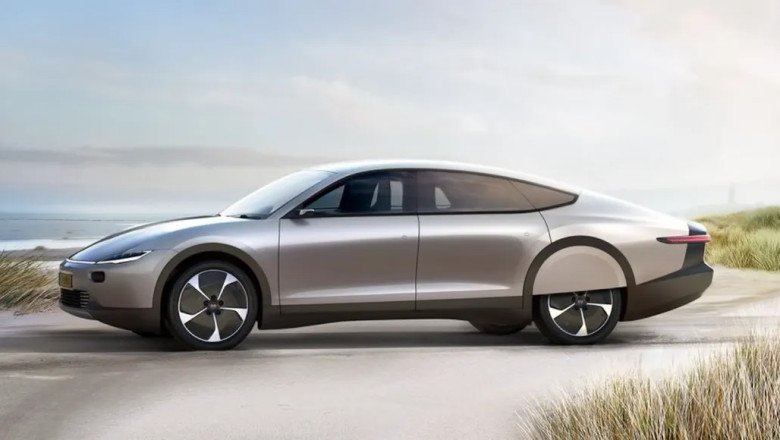
views
Solar cars are no longer the stuff of science fiction. As the world pivots toward sustainability and cleaner energy sources, solar-powered vehicles are capturing the imagination of engineers, environmentalists, and electric vehicle enthusiasts alike. These vehicles promise zero emissions, near-endless range under sunlight, and a revolution in how we power transportation. But how close are we to seeing them on our roads? Let’s dive deep into the world of solar cars.
A solar car is a vehicle that runs either entirely or partially on solar energy. It uses photovoltaic (PV) solar panels mounted on its body panels to convert sunlight into electricity, which powers an electric motor. Solar cars store excess energy in batteries for use during nighttime or cloudy conditions.
There are generally two types of solar-powered vehicles:
Solar cars operate by harnessing the photovoltaic effect. Here’s how the system works:
This self-contained ecosystem eliminates the need for fossil fuels and reduces dependency on external charging infrastructure.
Despite looking and sounding futuristic, the story of solar powered cars actually goes back several decades:
Modern iterations like the Lightyear 0, Aptera, and Sono Motors Sion are paving the way for commercial viability.
The UAE and the wider Middle East are uniquely suited for the success of solar-powered vehicles due to their climatic conditions. Solar powered cars are not just possible in the Middle East, but they could thrive.
The region enjoys more than 3,500 hours of sunshine annually. Dubai alone gets about 3,580 hours of sunlight every year, and some areas of the Sahara desert gets 4,000 hours. That’s 40 to 45% of the entire year! This makes it ideal for the usage of solar panels.
High Solar Irradiance
The intensity of solar energy is among the highest in the world, increasing panel efficiency. The average annual solar irradiance exceeds 2,000 kWh per square meter. The government recognises this and has worked towards harnessing this energy. In fact, the world’s largest solar power park is the Mohammed bin Rashid Al Maktoum Solar Park in Dubai.
Cost Savings
With rising fuel prices and a push towards electrification, solar cars could offer long-term economic benefits, saving on both electricity bills and fuel costs.
Despite their promise, solar powered cars face several hurdles:
A car can only fit so many solar panels, limiting how much energy it can generate.
Performance drops on cloudy days and is non-existent at night unless paired with large batteries.
Advanced solar panels, custom bodywork, and lightweight materials increase production costs.
Maximizing solar energy collection often requires compromising on weight, comfort, or performance. Both solar panels and batteries are heavy.
While the concept is compelling, solar powered cars haven’t broken into the mainstream auto industry for several reasons:
That said, the tide is turning. Companies like Aptera and Lightyear are changing perceptions and pushing the boundaries of what’s possible.
The future looks promising:
With innovation accelerating and sustainability becoming non-negotiable, solar cars are poised for exponential growth.
Find the best cars for sale in the UAE.
Stay tuned to UAE’s most popular auto blog for more automotive content.
Also Read:
Solar cars are not mainstream due to high production costs, limited solar panel surface area on vehicles, and energy efficiency challenges that make them less practical than traditional EVs for now.
Yes, some prototypes like Aptera and Lightyear 0 can run entirely on solar power under optimal sunlight conditions, but most commercial models are solar-assisted and still rely on battery charging.
Depending on design and sunlight exposure, a solar car can generate up to 70 km of range per day from sunlight alone, with battery packs extending total range to 600–1,000 km in some models.
Absolutely. Countries with abundant sunlight like the UAE are ideal for solar cars, as high solar irradiance improves energy capture, making solar EVs more efficient and viable year-round.
A solar car generates electricity from the sun using onboard solar panels, while a standard electric car relies on grid-based charging. Solar cars can reduce or eliminate the need for external charging under ideal conditions.
Follow us on
The 4th edition of the Electric Vehicle Innovation Summit (EVIS) 2025 concluded after three dynamic days…
Chery is reviving its popular QQ hatchback, debuting a modernised version at the upcoming Shanghai Auto…
Dubai is set to enhance its electric vehicle (EV) infrastructure with the installation of new EV…
Al Qudra Cycle Track, also called Saih Al Salam Bicycle Track, remains a popular spot for cyclists and fitness lovers
Renewing your car registration in Sharjah is a yearly requirement for all vehicle owners to comply with UAE law. Driving
Looking for the best way to travel between Dubai and Sharjah? The Dubai to Sharjah ferry is a reliable and
The UAE is a paradise for car enthusiasts. You can find a huge variety of vehicles here, from luxury sedans
In an effort to promote safer driving and reduce the financial burden on motorists, the Abu Dhabi Police and Judicial
Selling a car in the UAE can feel like a guessing game if you don’t know its true value. But
Your email address will not be published. Required fields are marked *
Comment *
Name *
Email *
Website
Δ
--> Back to top
Back to top




















Comments
0 comment